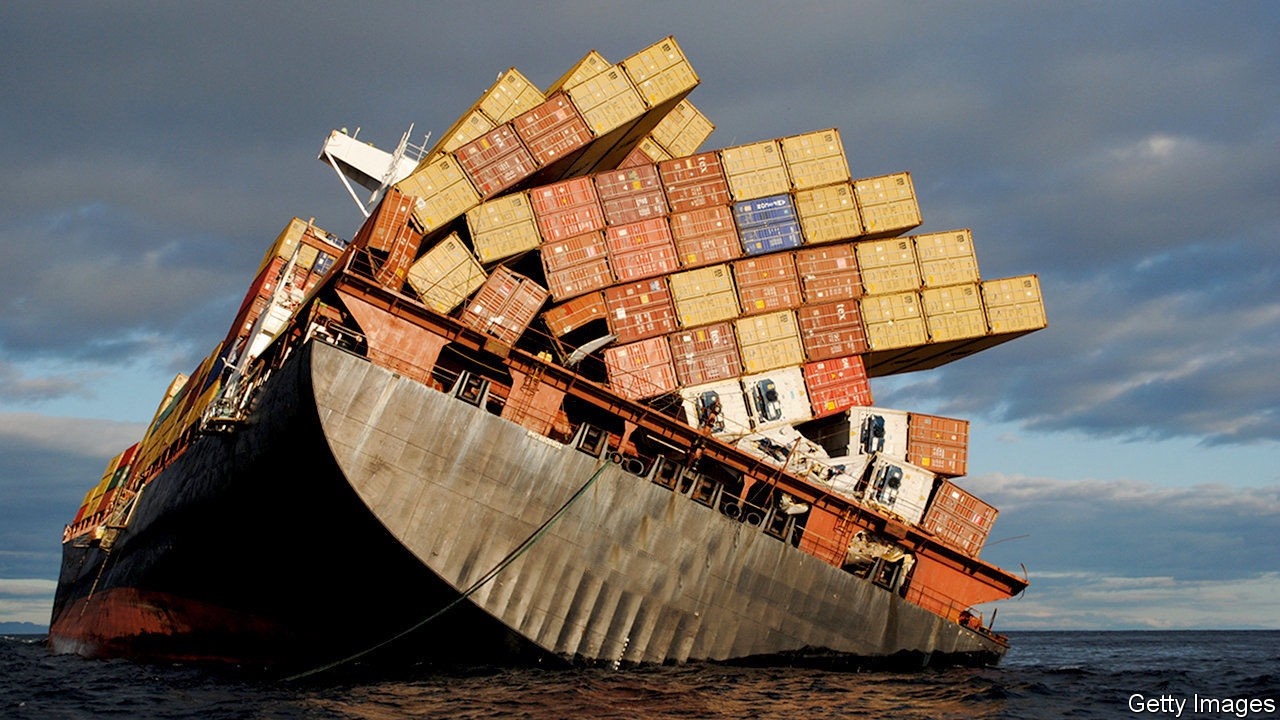The Glo-Bull Economy

So the US economy is in the shitter.
Massive layoffs every month - though rarely to executives. Jobs being shipped overseas by the cartload. The market goes up, but that only means the rich are getting richer as no one else has money to buy the crap. Investrors are cringing in their bunkers because there might be another 9/11. And pretty much everyone with a job is cringing because they know if they lose it odds are they won’t get another.
Some people see this as a step towards the “Global Economy.” Whereby the US standard of living will adjust down while the rest of the world’s adjusts up. It’s a reasonable sounding theory. And it’s also bullshit.
The bursting of the dot-com bubble wasn’t part of any shift of the global socio-economic plates. It was greed. Pure and simple. Rich bastards saw they could double and triple their money in a couple of years and they all piled on. It was not uncommon to see 3 or 4 or more nearly identical start-ups shooting for the same narrow market sector. The Workers sacrificed everything for their shot at just a slice of this pie and, for the most part, they were dashed on the rocks.
When things took a turn for the worse, the investors went pure defensive and pulled back their cash. Leaving the people who built the companies to deal with being suddenly jobless and uninsured.
So it was this unbridled greed that started the slide.
Things were just starting to come back when we had 9/11. Between the actual event, the public reaction to it, the wars that we fought because of it, and the ever-present worry that it will happen again it’s no wonder that the US economy is in the shape it’s in.
Was 9/11 part of a global economic leveling? Hell no. Without that event, the pecking order of economic might would by now have returned to its normal state. All 9/11 has done is delay this return.
But what about all the jobs being sent overseas? Is that part of the balancing of the global economy? The folks in India now have jobs while unemployment in the US is skyrocketing.
Well lets look at what happened. Offshore development really took off during the dot-com boom years. During those days, time and cash flow were crucial as everyone was riding on investor funding. Offshore development solved both problems - it provided talented people who were in short supply for a reasonable price. Lets not forget that college graduates in the late 90’s were demanding $100,000 per year and getting it because there was a shortage of engineers at the time.
But when things collapsed, the executives turned to offshore facilities as a way to get around US employment regulations. What they effectively are doing is laying off a highly-paid US employee, and replacing him/her with a much less expensive person in India or Russia or where ever. Were it not for this “offshore facility” ruse, these companies would be getting sued left and right.
And, of course, the salaries for top executives continue to be the fastest growing. So we know where the “sacrifice for the company” is being felt. Not by the people with several multi-million-dollar homes, that’s for sure.
So, again, the outflow of jobs isn’t part of global economics either. It’s just the same rich assholes in the US protecting their assets.
And when things get better in the US and they can hired back the US employees (now at lower wages … how convenient), the people in the offshore facilities are totally screwed. Why? Because all they are is labor - they don’t own what they’re building.
Some would argue that the effects of US greed as outlined above are part of this global leveling process. That this downward spike had to happen because of it. Which is, again, bullshit. Lets not forget that we have several compounding events here, only one of which is purely economic on it’s own (the dot-com crash). When the threat if terrorism is either gone or adjusted to, investment will begin again in the US and the economy will recover.
And lets not also forget that, with the exception of the Japanese, the US is probably the hardest working country of those that are worth looking at. Compared to Europe, Americans get squat for vacation and benefits. Most families in the US have both parents working. We have a lot because we work a lot.
And here’s where it gets interesting, actually. The down-turn has forced many people to change careers and some are happier now. They make less, but they wouldn’t return to their corporate lives. So if there is to be a global shift, lets hope that it in some way balances the benefits employees gets closer to what the rest of the industrialized world enjoys.
